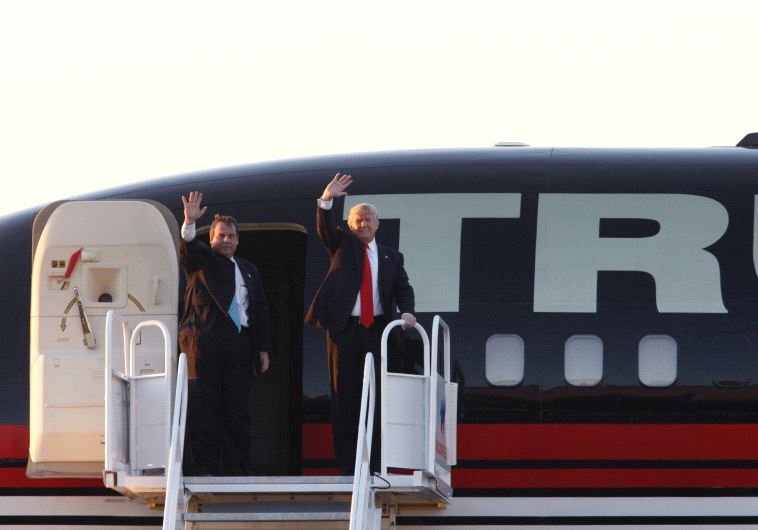Analysis: Can Trump construct a new world order?
For its part, Israel should be cognizant of the fact that a Trump administration will be capable of radical change in global affairs.
 Governor Chris Christie (L) and current candidate Donald Trump (R) wave from Trump's jet. Updated:
Governor Chris Christie (L) and current candidate Donald Trump (R) wave from Trump's jet. Updated: